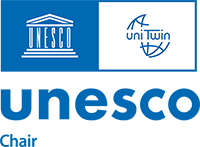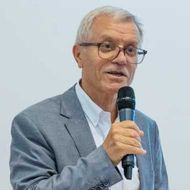- A
- A
- A
- ABC
- ABC
- ABC
- А
- А
- А
- А
- А
- HSE University
- UNESCO Chair on Future Studies
- News
- HSE’s Cutting-Edge Foresight-Studies Recognized at the BRICS Cooperation Meeting in Brazil
-
-
Education
-
Science
11 Myasnitskaya St., Moscow
+7 (495) 621-28-73
issek@hse.ru
Meissner D., Zhou Y., Fischer B. et al.
Technological Forecasting and Social Change. 2022. Vol. 178.
Abdrakhmanova G., Vasilkovsky S., Vishnevskiy K. et al.
M.: National Research University Higher School of Economics, 2022.
Saritas O., Burmaoglu S., Ozdemir D.
Futures. 2022. Vol. 137.
Sokolov A., Shashnov S. A., Kotsemir M. N.
In bk.: BRICS Comprehensive Innovation Competitiveness Report 2020. Scientific and technical documentation press, 2021. P. 36-98.

HSE’s Cutting-Edge Foresight-Studies Recognized at the BRICS Cooperation Meeting in Brazil

Scientists, experts and authorities from 11 BRICS+ countries met in Brasilia to discuss how effectively use technological foresight to solve key problems connected with climate change and artificial intelligence (AI). The international seminar provided each country with an opportunity to share experiences in developing and applying new methods and approaches to STI foresight in a rapidly changing world as well as to strengthen the encouragement of multilateral partnerships.
Adriana Thomé, general coordinator of Multilateral Cooperation at the Ministry of Science, Technology, and Innovation (MCTI), emphasized that despite the diverse realities of the participating countries, there was consensus on priority topics for the future of science and technology particularly the issue of climate change.

Fernando Rizzo, President and Director of the Center for Management and Strategic Studies (Centro de Gestão e Estudos Estratégico/CGEE), noted a convergence among the countries. While some are still in the process of defining directions, strategies, and implementation methods for their projects, others are already at more advanced stages. “This is the case of Indonesia and Russia, which are actively engaged in the field of technological foresight. Russia, for instance, has the HSE University — a center of excellence offering robust programs focused on mathematical methods applied to artificial intelligence modeling," Rizzo highlighted.
Professor Alexander Sokolov, from Russia's National Research University Higher School of Economics (HSE) — the country's leading university and research institute —highlighted how foresight is employed to achieve a collective vision of the future. He cited some of Russia's accomplishments in this field, bringing to the discussion the main trends influencing the development of global science and technology. He also shared experience on foresight-studies of artificial intelligence accomplished in 2024.

Indonesia was represented by Boediastoeti Ontowirjo, who introduced the topic of foresight into the discussion through the country's National Development Plan, outlining steps for implementing technological foresight methodologies.

According Caetano Penna, Director of the Center for Management and Strategic Studies (Centro de Gestão e Estudos Estratégico/CGEE), technological foresight should be aligned with the concrete needs of the population and the transformative role of science and innovation. "Foresight is an analysis of the future. In this context, it refers to a study to anticipate trends and identify actions we can take today to achieve goals in science, technology, and innovation. Essentially, it seeks to answer how we can develop technologies to address societal challenges by looking ahead and determining which technologies need to be developed. We must recognize that science and technology should serve the purpose of solving concrete problems and improving living conditions."
In addition to the workshop, the Center for Management and Strategic Studies (CGEE) is organizing an in-person event in October 2025 with the aim of drafting an official document of recommendations on foresight. This material will seek to provide a set of strategic guidelines on the key opportunities within the topic, focusing on fostering cooperation among the BRICS+ countries.
- About
- About
- Key Figures & Facts
- Sustainability at HSE University
- Faculties & Departments
- International Partnerships
- Faculty & Staff
- HSE Buildings
- HSE University for Persons with Disabilities
- Public Enquiries
- Studies
- Admissions
- Programme Catalogue
- Undergraduate
- Graduate
- Exchange Programmes
- Summer Schools
- Semester in Moscow
- Business Internship
- © HSE University 1993–2025 Contacts Copyright Privacy Policy Site Map
- Edit

